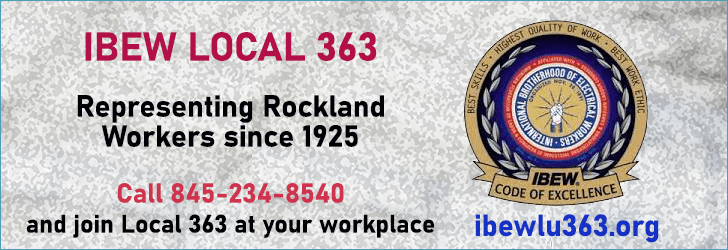|
RCBJ-Audible (Listen For Free)
|
A Slate of New Laws Passed at Year-End Affects New Yorkers, New York Businesses And Tenants Rights
This year the New York State Legislature passed 896 bills – more than 500 of which passed in the final days of the session – and most without a single hearing or opportunity for public comment. Tradition has it that each year-end comes with a rush of new laws, amendments, and vetoes.
Rockland County Business Journal takes a look at some of the new laws signed (or rejected) by Governor Kathy Hochul and examines how those laws affect New Yorkers.
Laws Affecting the Establishment of New Villages
Two bills tightening rules to form new villages in New York were signed by Governor Hochul after some last-minute amendments were negotiated.
Existing state law allowed the formation of a new village with little more than a referendum and a population of at least 500 residents.
New York has 532 villages, most of which were created in the 1800s and early 1900s to provide services to growing areas. New ones are rare, with just six formed in the last 30 years and one of those already disbanded. Residents have voted 28 villages out of existence over those same three decades, including the Village of South Nyack.
An amended version of the law requires a population threshold of 1500, instead of the 2,000 originally passed by the legislature. Also, the law would subject future village proposals to greater scrutiny, including requiring a study to measure the potential impact on local taxes, government finances, and services.
A state commission will also decide whether to allow a village referendum to proceed. That panel would conduct two separate studies of feasibility and impact.
One exception was carved out of the new law for the Viznitz Hasidic community in Sullivan County and its effort to establish the Village of Ateres. It had already successfully petitioned to become a village, and a public referendum on its efforts is scheduled for January 18th in the Town of Thompson.
The Village of Seven Springs’ efforts to establish a new village in Orange County will likely be blocked by the new population threshold. Seven Springs’ population was only 597 when its petition was last filed and rejected. Representatives of Seven Springs plan to challenge the new law, claiming it unconstitutionally infringes on the right to petition the government.
Two other proposed villages impacted by the new law are the Satmar Ichud village in the Town of Thompson in Sullivan County and the proposed Kiryas Skver at the former Homowack Hotel, in the Town of Mamakating in Sullivan County.
Minimum Wage
Beginning January 1st, New York’s minimum wage will increase from $15 per hour to $16 per hour in New York City, Long Island, and Westchester County and from $14.20 per hour to $15 per hour in the rest of the state.
The increases are part of a multi-year plan to increase New York’s minimum wage through 2027 and then index future increases to inflation.
Minimum wage for home care aides will also increase to $18.55 per hour in New York City, Long Island, and Westchester County and $17.55 per hour in the rest of the state.
LLC Transparency Law
A new LLC Transparency Act was signed by Governor Hochul and will create a database of the beneficial owners of Limited Liability Corporations that’s accessible to government agencies and law enforcement. To protect the privacy of LLC members, the records will not be available on a public database.
The bill was modeled from a federal law aimed at tackling fraud and corruption, set to take effect January 1st, requiring owner name disclosures to the U.S. Department of the Treasury.
“For far too long, bad actors have been protected by the loose disclosure requirements of LLC ownership,” Hochul said in a statement. “Wage theft, money laundering, tenant mistreatment and other unlawful activity has been masked by the opaque ownership structure of an LLC. The new LLC Transparency Act will give law enforcement and State regulators the tools they need to hold bad actors accountable.”
In September, the Town of Clarkstown passed its own version of an LLC Transparency Act requiring residential properties situated in the town and owned by LLCs and corporations to disclose “beneficial owners” including their full legal name, residential street address, phone number, date of birth, and driver’s license or passport number.
Rent Stabilization Measures
A new law strengthens tenant protections by making various changes to New York’s Rent Stabilization laws. The changes seek to avoid improper deregulations and rent increases, while strengthening enforcement of the rent stabilization laws.
“This legislation will help to protect the one million New Yorkers living in rent-stabilized apartments and give our state better, stronger tools to enforce our rent stabilization laws,” Governor Hochul said. “As New York continues to face a costly housing crisis, my administration is committed to addressing the housing shortage, building new supply and making our state more affordable.”
The law clarifies the standards for determining whether a landlord has engaged in a fraudulent scheme to deregulate a unit, requires landlords going forward to get approval from Homes and Community Renewal (HCR) before deregulating a unit due to a substantial rehabilitation, stiffens penalties for failing to register a unit, codifies methods for calculating rents after units are combined or modified, and reinforces HCR’s authority to enforce the rent stabilization laws, among other measures.
Non-Compete Agreements
Governor Kathy Hochul vetoed a bill that would have imposed a near total ban on employee non-compete agreements in New York State.
Although Hochul previously expressed her support for the ban for “low and middle-income” employees, she was uncomfortable with a blanket prohibition covering highly compensated professionals and executives. The bill she vetoed would have banned future non-compete agreements for all employees, regardless of earnings level.
Some labor unions encouraged Governor Hochul to sign the legislation in its original form; many business groups and trade associations opposed the legislation. The Business Council of New York State and the New York City Bar Association, among others, publicly urged Governor Hochul to veto the bill or secure substantial amendments.
Hochul previously proposed signing the bill subject to an exemption for employees earning $250,000 or more in total annual compensation.
In a statement explaining her veto, Governor Hochul lamented that she “attempted to work with the Legislature in good faith on a reasonable compromise,” but was constrained to veto the proposed legislation with its “one-size-fits-all approach.”
The Governor’s veto memo notes that she remains committed to enacting non-compete legislation to protect “middle-class and low-wage earners.”
The Federal Trade Commission – which supported the now-vetoed New York bill – continues to evaluate whether to issue a final rule implementing its own nationwide ban on non-compete agreements.
















